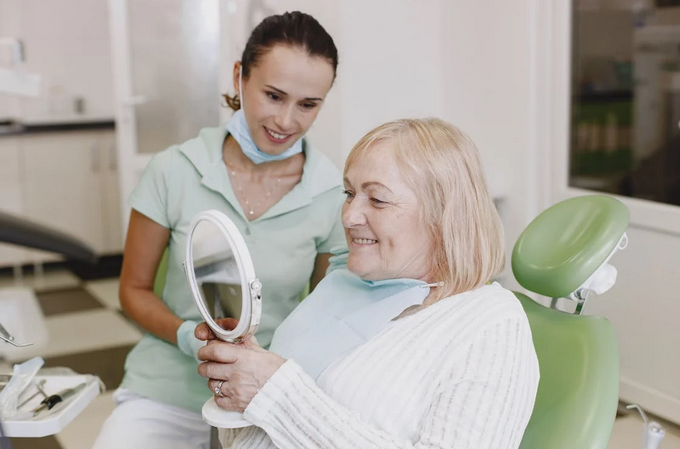
As we age, our dental needs change, and it becomes even more important to prioritize oral health. Seniors often face unique challenges such as gum disease, tooth loss, and other age-related dental issues. Fortunately, modern dental clinics offer a range of treatments specifically designed to support aging smiles. If you or a loved one is in their golden years, here’s a friendly guide to the top dental treatments available for seniors at Dentist Richmond.
Maintaining oral health as we age isn’t just about keeping your smile bright. It’s about preserving overall well-being. Poor dental health has been linked to a variety of serious health issues, including heart disease, diabetes, and respiratory problems. Keeping your teeth and gums in good shape can help you live a healthier, more comfortable life. Additionally, seniors may experience dry mouth due to medications, receding gums, or reduced dexterity, making it harder to brush and floss effectively. These factors make regular dental checkups and specialized treatments even more essential.
Dentures: Full and Partial
One of the most common treatments for seniors is dentures. Dentures are removable replacements for missing teeth and come in two main types:
- Full Dentures: These are used when all the teeth are missing. They rest on the gums and can restore both appearance and function, allowing seniors to chew, speak, and smile with confidence.
- Partial Dentures: If some natural teeth remain, partial dentures can fill in the gaps. They are designed to clip onto existing teeth, preserving the alignment and preventing the remaining teeth from shifting.
Modern dentures are more comfortable and natural-looking than ever before, helping seniors maintain their quality of life.
Dental Implants
For seniors who want a more permanent solution to missing teeth, dental implants are an excellent option. Implants are small titanium posts that are surgically placed in the jawbone, acting as artificial tooth roots. Once healed, they can support crowns, bridges, or dentures. Dental implants are popular among seniors because they look, feel, and function like natural teeth. They also help preserve the jawbone, preventing the bone loss that often occurs with missing teeth. While the procedure may take longer than other treatments, implants can last a lifetime with proper care, making them a long-term investment in oral health.

Gum Disease Treatment
Seniors are more prone to gum disease (also known as periodontal disease), which can lead to tooth loss and other health problems if left untreated. Gum disease is often caused by plaque buildup, but age-related factors like dry mouth and receding gums can make seniors more vulnerable.
Treatment for gum disease typically involves:
- Deep Cleaning (Scaling and Root Planing): This treatment removes plaque and tartar from below the gumline, helping to prevent further damage.
- Medications: In some cases, antibiotic gels or oral medications may be used to reduce infection and inflammation.
- Surgery: For more advanced cases, surgical treatments like flap surgery or bone grafting may be necessary to restore gum health.
Regular dental checkups can catch gum disease early, making treatment easier and more effective.
Crowns and Bridges
Dental crowns and bridges are popular options for seniors dealing with damaged or missing teeth. Crowns are custom-made caps that fit over damaged teeth, restoring their shape, size, and strength. Bridges, on the other hand, are used to replace one or more missing teeth by anchoring artificial teeth to the adjacent natural teeth. Both crowns and bridges are made from durable materials like porcelain or ceramic, making them strong and long-lasting. These treatments not only improve the appearance of aging smiles but also help seniors maintain proper chewing function.
Treatment for Dry Mouth
Dry mouth (xerostomia) is a common problem among seniors, often caused by medications or health conditions. It can lead to an increased risk of cavities, gum disease, and discomfort. Dental clinics offer several solutions to help manage dry mouth:
- Saliva Substitutes: These over-the-counter products can help moisten the mouth and reduce discomfort.
- Prescription Medications: In some cases, your dentist may prescribe medications that stimulate saliva production.
- Hydration and Diet: Your dentist may recommend drinking plenty of water and avoiding caffeine, alcohol, and sugary foods, which can worsen dry mouth.
Aging smiles need extra care, and modern dental clinics offer a wide range of treatments to meet the unique needs of seniors. Whether it’s dentures, implants, gum disease treatment, or simply routine cleanings, there are many ways to support healthy teeth and gums as we grow older. Regular dental checkups, paired with good oral hygiene habits at home, are essential to keeping your smile strong and your overall health in check.
